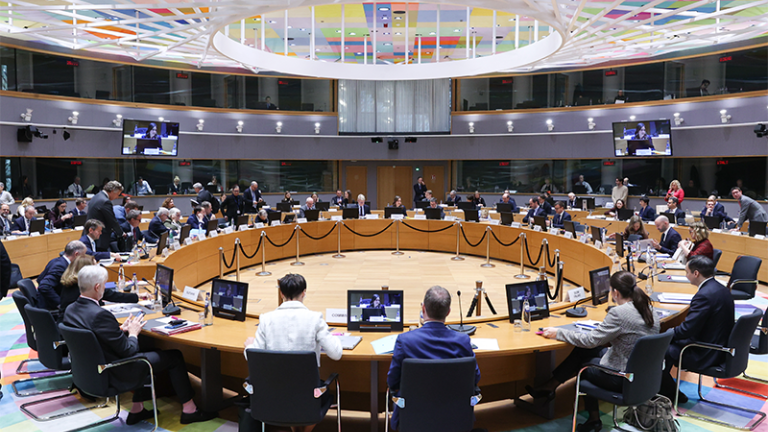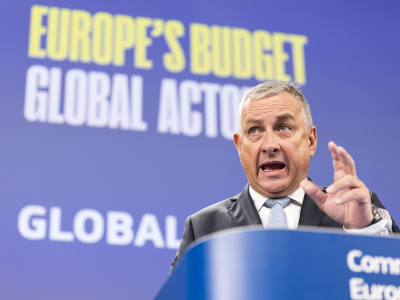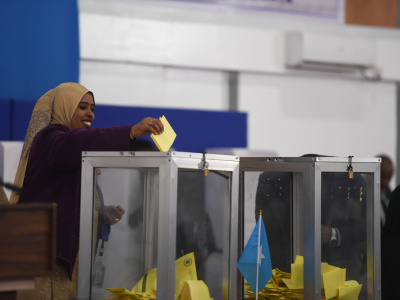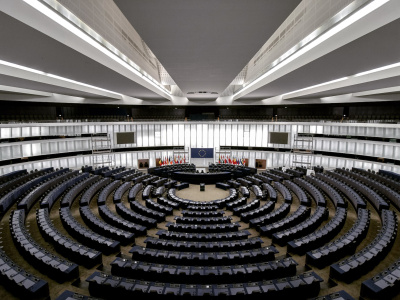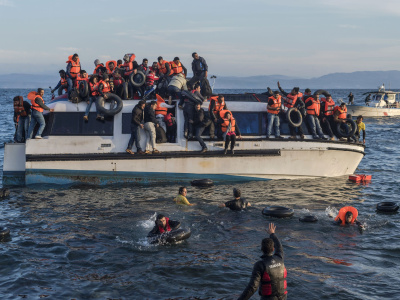
Inside the EU’s long-term budget: The multiannual financial framework explained
Authors
Dossier – Last updated on 15 January 2026
The multiannual financial framework (MFF) is the EU’s long-term budget, powering its policies both within and beyond its borders over a seven-year period. The current MFF, amounting to €1.2 trillion (in constant prices and excluding the €750 billion allocated for the NextGenerationEU recovery instrument), will run until 2027. The European Commission, the European Parliament and the Council of the EU – representing the EU member states – are gearing up for negotiations on the next budget framework beyond 2027.
Building on years worth of work on the multiannual financial framework, we will provide analysis, facilitate discussion and closely monitor the negotiations leading up to the final agreement on the next long-term budget. We will examine the implications for Europe’s global role, focusing on its foreign policy, development and international cooperation, and relations with its immediate neighbourhood, Africa and the Global South. We will also look at the coherence between internal and external policies and between budgetary instruments, as well as the extent to which they complement each other.
In this dossier, you can find our latest work on the new long-term budget, as well as insights into the current and past frameworks.
Get in touch
Would you like to know about our work on the EU’s long-term budget, engage our expertise or share your thoughts? Get in touch with Alexei Jones, Mariella Di Ciommo or Andrew Sherriff. For media enquiries, please contact Isabell Wutz or Virginia Mucchi.
Explore our work
- Negotiations on the 2028-2034 MFF
- Implementation of the 2021-2027 MFF
- Negotiations on the 2021-2027 MFF
- Implementation of the European Development Fund
- Negotiations on the 2014-2020 MFF
Negotiations on the 2028-2034 MFF
Discussions on the next multiannual financial framework have already started, with formal negotiations scheduled for late 2025. Through a series of analysis and events, we aim to inform this process and shed light on the complexities of the negotiations.
'Connecting the dots' initiative
At ECDPM, we have consistently argued that external action is not an add-on but a strategic necessity. Europe cannot afford to treat its internal and external priorities separately. That's why in October 2025, we launched a new initiative.
|
Through our ‘Connecting the dots’ initiative, we aim to bridge the communities that shape the MFF – spanning competitiveness, defence and international partnerships. Starting this autumn, we will bring together policymakers, practitioners and experts in closed-door and public dialogues to explore how Europe can better align its internal priorities with its global ambitions. By fostering dialogue across policy communities, we hope to support a more integrated and strategic EU budget. We also invite policymakers, experts and partners interested in these themes to share feedback and join us in this effort to connect the dots. If you would like to know more, share insights or partner with us, please get in touch with Alexei Jones or Mariella Di Ciommo. |
 |
Analysis
Expertise (external contributions)
External financing in the next EU budget: Bold ambition or an announced retreat?
Mariella Di Ciommo has contributed a chapter to the latest edition of TEPSA's 'European Council Experts’ Debrief' titled 'Towards the next MFF: Can the EU deliver?' (14 October 2025)
Backing Ukraine above the 2028-2034 MFF ceiling poses political rather than financial risks
This article from The New Union Post is based on interviews with Amandine Sabourin and Mariella Di Ciommo (8 September 2025)
Migration in the new EU external instrument: Continuity, leverage and conditionality
Anna Knoll provides a preliminary assessment of how the external dimension of migration is covered in the Global Europe instrument proposal (21 July 2025)
Is von der Leyen ready for bruising budget battles?
Alexei Jones appears in the latest 'Brussels, my love?' episode by Euronews to discuss MFF politics and the misstep of cuts for external action (19 July 2025)
Domestic and international priorities in the EU’s next long-term budget
ECDPM director San Bilal highlights key points from the European Commission's MFF proposal that deserve attention (17 July 2025)
EU seeks major boost to development in budget amid ‘Europe First’ shift
Alexei Jones is quoted by Devex (17 July 2025)
An increased future EU budget for international cooperation - some first quick thoughts
Andrew Sherriff shares his first thoughts on the European Commission's proposal for the next MFF and an increased budget for international cooperation (17 July 2025)
The smartest move: Why the EU must invest in every child, everywhere
For Save the Children, Katja van der Meer examined the political and funding challenges in prioritising children’s rights in EU external action (9 July 2025)
EU Open Public Consultation on the EU’s next long-term budget (MFF)
ECDPM provided input into the EU's open publication on the MFF (5 May 2025)
European Citizens' panel
Alexei Jones was appointed as an expert in the knowledge committee advising and shaping discussions for the European Citizens' Panel on the new MFF (March-May 2025)
Health is closely linked to both the EU’s external and internal interests
For Global Health Advocates, Katja van der Meer examined the MFF in relation to health (5 February 2025)
Infographics
Implementation of the 2021-2027 MFF
The current MFF is structured around specific headings, including Heading 6 – Neighbourhood and the World. Within these headings, funds are allocated through various instruments. Under heading 6, the largest instrument is the Neighbourhood, Development and International Cooperation Instrument – Global Europe (NDICI-Global Europe). Over the past few years, we analysed how NDICI-Global Europe has been implemented.
Negotiations on the 2021-2027 MFF
Starting in 2018, we conducted extensive analysis on various aspects of the negotiation process for the 2021-2027 multiannual financial framework. Some of this analysis focused on specific geographic or thematic issues, while other work provided a broader, more overarching perspective.
Implementation of the European Development Fund
The European Development Fund (EDF), while not formally part of the MFF, was typically negotiated, planned and implemented alongside it. This multibillion-euro instrument targeted specific African, Caribbean and Pacific countries under the Cotonou Partnership Agreement. The 11th EDF is currently being ‘spent down’ following the decision not to renew it in 2021, with the fund being replaced by NDICI-Global Europe. We examined in detail the implementation of the EDF at the national and regional levels.










